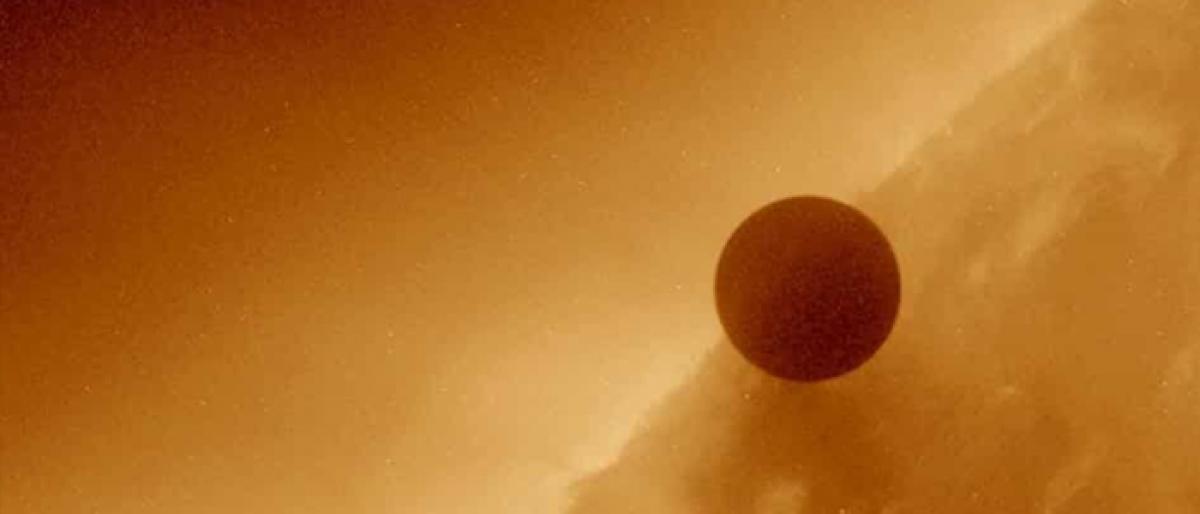Live
- Russia needs a peace deal as it is running out of soldiers
- MyVoice: Views of our readers 25th November 2024
- Lack of planning, weak narrative behind MVA debacle
- UTF dist unit golden jubilee celebrations begin
- TSIC launches ‘Innovations 101’ coffee table book
- Drone technology for crime control
- Do you support caste census? Which one will you prefer caste census or skill census?
- DSS to launch gender campaign today
- MJCET holds first-ever 24-hr datathon
- TDP, JSP, YSRCP urged to oppose Wakf Bill
Just In
ISRO calls for global proposals to carry experiments on Venus mission


ISRO has invited proposals from the international scientific community to carry out novel experiments on its planned Venus mission, scheduled to launch in 2023, the space agency said
ISRO has invited proposals from the international scientific community to carry out novel experiments on its planned Venus mission, scheduled to launch in 2023, the space agency said.
The call presents an opportunity for scientists from foreign space agencies, research laboratories, and academic universities to study Venus, the Indian Space Research Organisation (ISRO) said in a statement. Venus is often described as the "twin sister" of the Earth because of the similarities in size, mass, density, bulk composition and gravity.
ISRO aims to identify important science experiments that strengthens or complements the overall science from the suite of pre-selected proposals from India on its Venus mission. "Proposers are expected to be currently involved in planetary exploration studies, the development of science instruments for space, willing to develop space worthy experiments and have access to associated facilities for test and instrument calibration," ISRO said. The capacity of the proposed spacecraft is likely to be about 100 kilogrammes with approximately 500 Watts of power.
The proposed highly inclined orbit is expected to be around 500 kilometres when it is closest Venus, and 60,000 kilometres when it is farthest. This orbit is likely to be reduced gradually. These values are likely to be tuned based on the final spacecraft configuration. The broad areas of research that ISRO plans to explore in its Venus mission include surface, subsurface and atmosphere of the planet, as well as its interaction with the Sun. Each proposal needs to identify a principal investigator (PI) and a funding agency. The PI of the proposal should be capable of providing necessary details of the instrument which can address the proposed scientific problems. The PI should also be assembling a capable instrument team and lead the team to deliver a space-qualified instrument.
There will be no exchange of funds between agencies for the international proposals, the statement said. The space agency encourages collaborations with teams from India on the design and development of instrument hardware, science modelling, simulations and joint calibration activities. The last date for submitting proposals is December 20. Since the 1960s, Venus has been explored by flyby and orbiter missions, a few lander missions and atmospheric probes.
In spite of some progress in exploring Venus at recent times, gaps exist in our understanding about its formation, spin, surface evolution and runaway greenhouse phenomenon, surface and sub-surface features, rotation of Venusian atmosphere and its evolution and interaction with solar radiation and solar wind.

© 2024 Hyderabad Media House Limited/The Hans India. All rights reserved. Powered by hocalwire.com






